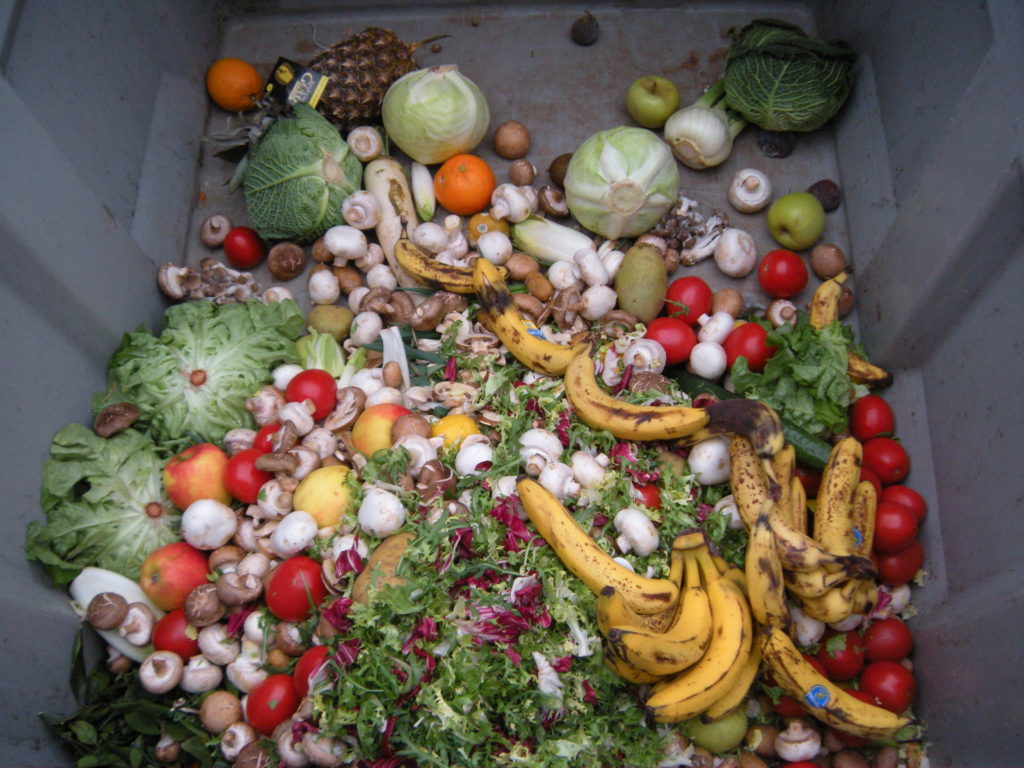Food. It’s something we all know and love. Even from a young age I remember the sheer excitement as my mother would pull into the driveway with a fresh load of shopping in the boot, as well as the pang of dread in realising I’d have to set my controller to one side and help carry it into the house. Coming from a Western country meant that I always had an abundance of food delivered directly to my digestive system, and even though I knew that not everyone was so lucky – “finish your food Jack, there are starving kids in the world” – at the time it wasn’t so clear to me the sheer volume of waste that I, my family, my friends and everyone else was responsible for: on a worldwide scale, we waste a staggering one third of the food that we grow per year.
A widespread issue
What this statistic means is that from the point of production, to the point where it can no longer be used – or is thrown away regardless – one third of all food is lost. However, things start to get a little more complicated when you focus on individual countries and cities. In poorer countries most of the food waste actually occurs en route to the market, and to illustrate this with an example, half of the cauliflower grown in South Asia is lost due to the lack of refrigeration; having less access to technology results in the spoiling of food which is actually quite precious in these areas. In contrast, in more affluent countries like Germany, most of the food is wasted after the point of purchase and so food waste is more of a consumer issue. This consumer issue is also exacerbated by food retailers, as their promotions entice customers to buy more than they need, which in turn increases the likelihood of household waste.

What’s the problem?
So we know that the issue is quite a complicated one, but why does it even matter if I throw away a half used head of lettuce and a couple of old carrots? While it certainly is better to throw them away than allowing them to grow into some kind of biology experiment at the back of the fridge, food waste has a huge environmental impact according to Maria Krautzberger, the President of the Umweltbundesamt in Germany. She claims that if food waste was a country, it would be the third highest emitter of greenhouse gasses behind the US and China; she also claims that of the total greenhouse gas emissions in Germany, food waste accounts for 4%. In a world in which the UN has warned us that we have 12 years left to make a difference, to reduce our emissions by even 4% would certainly have an impact, or at the very least buy us more time. Saying that, there are other social issues associated with food waste, with around 795 million people not having enough access to food to lead a healthy or active lifestyle; however this particular issue also exists for other social and political reasons, nonetheless food waste is still a factor.
Stadt solutions
As someone who lives in Germany with a limited amount of money, there isn’t really a lot I can do to provide refrigeration for those living in South Asia, and I image most of you reading this are in a similar position. However, given that Germany is the second biggest food waster in the EU – soon to be number one after Brexit – there are things that can be done on a national, Berlin wide or even on a household scale to make a difference. Some examples of organisations who are tackling this issue in Berlin are Too Good To Go, an app which allows stores to sell excess food at a reduced price; Sirplus, who collect food which would otherwise end up in the trash, even food which has an error in the packaging for example; and Tafel, a food bank which collects unwanted food to feed people in Berlin who otherwise may not be able to afford it, including children and adolescents. Each of these organisations tackles a slightly different niche, and for completely different reasons all together, however the bottom line stands: they’re all working towards reducing the significant amount of food wasted on a yearly basis.

People power
However, it isn’t necessary for you to have some groundbreaking idea to get involved with reducing food waste; as I already mentioned, even at home you can make some changes. Instead of throwing away those carrots and the head of lettuce, why not see if anyone else wants them? How about collecting and composting your bio-waste, in order to grow your own vegetables? If you live in a WG, why not share meals with your flatmates, or just buy food on a need-it-basis? The downside to my advice is that I’m not an expert in food waste, merely a blogger with a passing interest, so I understand if you want to take my words with a pinch of salt (though try not to use too much). The good thing is that the team at GreenBuzz has organised a great event with the aforementioned organisations, who will speaking about all things food waste on December 6th, so if you’re interested in finding about how you can make a difference, that’s probably a good place to start. Personally, I still love food as much as I used to all those years ago, it’s just now as I’ve grown older, I’ve become more conscious of my consumption habits. Why not come by and see if you can do the same?
Click here to check out the event on December 6th.
- Why Do Gases Act As Greenhouse Gases? - November 12, 2019
- 3 Reasons Why Protecting Our Rivers Is Incredibly Important - September 22, 2019
- The 5 Most Abundant Greenhouse Gases and Where They Come From - September 6, 2019
